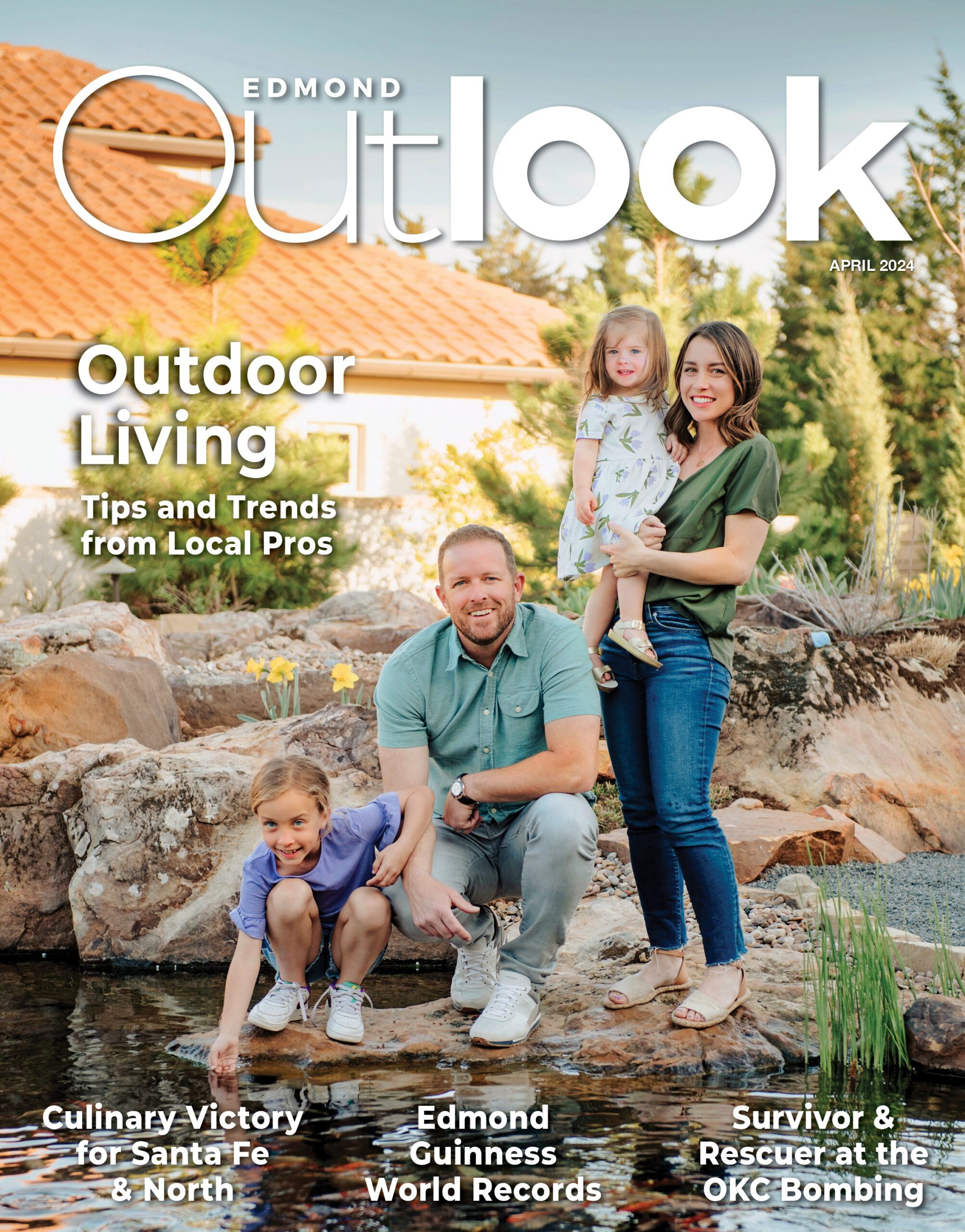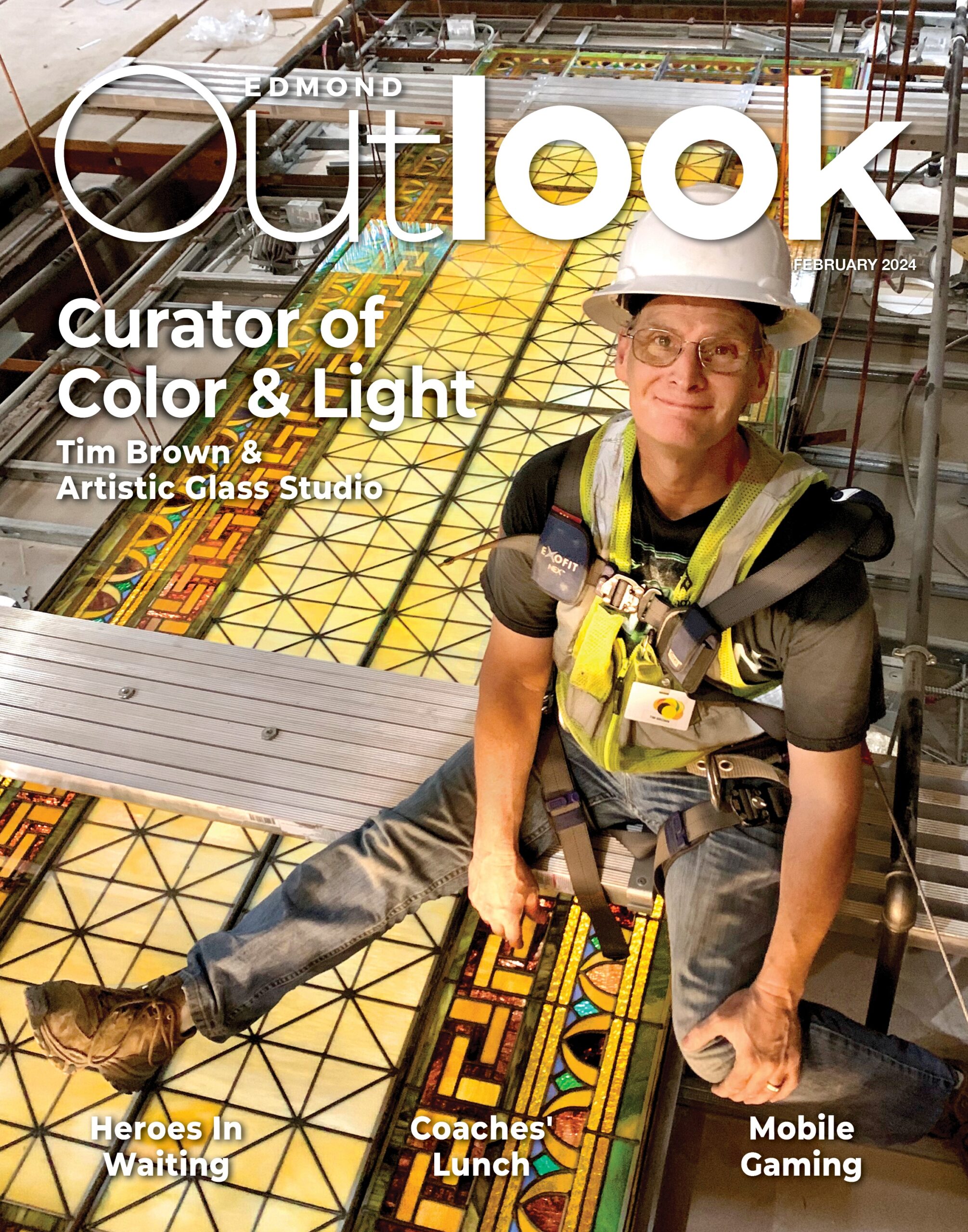Signing at UCO
Preschool children travel up to seventy-five miles and from several counties to attend the Oklahoma School for the Deaf Edmond Regional Preschool at UCO. They come from towns like Billings, Cushing, Shawnee, and Mustang. Connected to the UCO Speech and Hearing Clinic, the preschool on campus is a Satellite of Oklahoma School for the Deaf in Sulphur.
Melanie Coldren, the school’s director, has been in deaf education for 33 years. Before teaching the preschool for 16 years, she taught in the elementary school Deaf Education program in the Mid-Del School District, and later coordinated Project ECHO with the State Department of Education.
Now she coordinates the educational program at the OSD/UCO preschool and is the coordinator of Project ECCO, a statewide family-centered program for children between the ages of three and six who are deaf and hard of hearing.
The preschool is co-taught by Connie Williams, a Speech/Language Pathologist, and Barbara Bingham, a Teacher of the Deaf and Hard of Hearing. Williams has worked in the preschool since 1991 and is a UCO faculty member. Bingham has taught in preschools in Texas and Oklahoma for children who are deaf, as well as preschools for hearing children.
There are four graduate assistants working in the preschool to provide language stimulation for the children and assist the teachers. These assistants are graduate students in the Speech/Language Pathology program at UCO. Under the supervision of Speech/Language Pathologists, student clinicians and volunteers work with individual students in the preschool.
“The children get a lot of one-on-one attention,” said Coldren.
The preschool has two classes. The class on Tuesday and Thursday is for children from birth to three years. Learning is emphasized through play and interacting with the children to develop communication skills. Parents participate with their children and attend a parent education/support group. In addition to mothers, some fathers and grandmothers also participate.
The class that meets on Monday, Wednesday, and Friday for children, age three to five years olds, also has a weekly parent group. Ten preschoolers attend. One little girl’s family moved to Edmond from the panhandle to be able to attend the preschool.
“With the older children, we work with their local school districts,” explains Coldren. Each child has an IEP, or an individualized education program, which includes goals for developing listening, language, and speech skills.
A storybook curriculum is used with a different book each week. All of the activities–centers, language group, and motor play–are related to the concepts and vocabulary in the storybook.
The children have varying degrees of hearing loss, but all have some delay in language acquisition. A total communication approach is used to enable the children to access language in the way that is most appropriate for them individually. Simultaneous signing and spoken language is used. An English-based sign system, Signing Exact English, is used to make English visible to the child.
“Most of the children have a high frequency loss,” said Coldren. “The problem is not that speech is not loud enough, but it is distorted. Without hearing certain sounds, even the child’s grammar is affected, such as not being able to hear the final sounds in ‘works’ or ‘worked.’ Some spoken language features are missing."
The major impact of deafness is on language development. Williams explained that parents go through a grieving process when they find out the child is deaf. “Different experts have different opinions about what to do. The best thing to do is meet another parent who knows the challenges and can encourage you. Find out how they deal with it.”
Most of the children wear hearing aids or FM systems. With an FM system, the teacher wears a transmitter with a microphone that matches the child's receiver. This eliminates some of the background noise that can interfere with the child's ability to hear the teacher's voice.
Some of the children have cochlear implants, an electronic device surgically implanted into the inner ear, which directly stimulates the auditory nerve. A cochlear implant gives a child greater access to sound, but the child has to learn to listen and interpret the sounds.
“Parents are the key to the child’s success. We try to equip them to interact with their child effectively, to help the child develop language. We talk to parents about how to work with their child and what they can do at home. Parents may not know what to do with a child who can't communicate."
Parents are encouraged to participate in Project ECCO. A parent advisor visits the home once a week to partner with the parent in the development of the child's communication skills, taking advantage of natural routines and play activities, and encouraging literacy development. This is not a therapy program for the child, but a program to increase knowledge and skills in the parents.
“The most exciting part of the program is when you have a child with a challenge receive the opportunity to become successful. There is joy in that. You can see the child’s face light up as he learns,” said Coldren.
“We have seen some former preschool students who have been in Honors and AP classes in high school and then go to college. Others have been in leadership roles in their high schools. One was the President of his class. To have been a part of this is a privilege and very rewarding."
For more information about OSD Edmond Regional Preschool or Project ECCO, contact Melanie Coldren at 405-974-5961.


